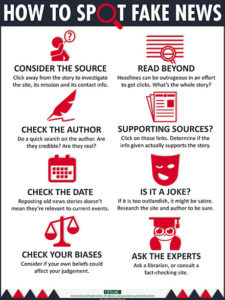When it comes to information about careers – whether it’s CV advice, interview tips or career paths – it can sometimes feel like everyone has an opinion. Maybe you have had to supress the urge to roll your eyes when a well-meaning relative has suggested you go and hand in hard copies of your CVs to get a job.
Additionally, with a difficult job market caused by the pandemic, you might be casting your search for job opportunities more widely and exploring a variety of different career options.
So we thought it was worth a rundown of our top tips to make sure that information the information you find about all things careers is legitimate.
Practical careers information
Put “how to write the perfect CV” into Google and you’ll get lots of answers that look useful. While we’re not saying that the information you can find this way will all be inaccurate, what we do find is that sites can often be contradictory, written with a particular country or sector in mind or be lacking nuance.
So, we would recommend that for advice on the basics of careers skills like writing applications, interview technique, psychometric tests and job searching skills – you go to MyFuture first. We have lots of resources that cover these areas written by our own team of expert careers professionals. Any external links we recommend have also been vetted by us to make sure they are appropriate. And all our resources have been collated with you – that is students and graduates studying at a UK University – in mind.
Special mention – psychometric tests
We especially want to highlight coming to us first when it comes to psychometric tests. There are lots of platforms out there where you can pay to practice tests. The Careers Service has paid for subscriptions to practice test platforms so you don’t have to! Find these on MyFuture
Wider careers research
Doing wider career research beyond MyFuture can be useful though. If you want to explore a sector in detail, find out more about an employer, improve your commercial awareness or try some networking. We’ve got several blogs that consider different methods.
Casting your research net and looking at a variety of sources has big benefits:
- Being well-informed about employers and industries means you can make better informed decisions about your next steps
- Impressing employers in applications and interviews with knowledge beyond the usual stuff that most applicants might talk about
- Finding new career options and opportunities that you were not aware of
- Making new connections and networks
However, it’s important to approach anything you find with caution. Just like in your academic work where you are encouraged to assess the credibility of sources, it can be useful to apply the same principles. Careers research can be more nuanced as you might use more informal sources like a networking chat with an industry professional. But these principles can still help you to think critically about what you find.
Consider the source – is it credible and reliable?
Who wrote the information you are reading and what is their background? This doesn’t mean you should only consider information from an official news website. More informal sources can be great for careers research. But for example, if you do see something interesting on social media – check who the author is. Are they a credible industry professional, or an anonymous random account lacking any source information?
Consider the motivation – Why has this information been written? Is the information trying to persuade you or get you to buy something?
Careers information can return information from sites or individuals who might be trying to sell you their online course or product that will solve all your career problems. Equally, an employer might not be trying to sell you something, but they ultimately want you to have a good impression of their company and want to work there! Bear these motivations in mind.
Consider the date – Things change
Sectors, employers and recruitment all change. That has never been truer than now! The pandemic has shaken up how we work and how employers recruit. It has also had big impacts on how sectors are operating. So double check the date of things that you find and put this into context.
Consider whether it applies to the area you are interested in
Different sectors and jobs can have vastly different norms. Consider what to wear for an interview – if you look at a source aimed at working in a tech startup, the advice will not be good if you are applying to corporate finance jobs!
It is also worth bearing in mind the country the information was written for. A lot of careers information online comes from the US which has some contrasting norms to the UK when it comes to recruitment and the workplace.
Read widely
Alongside these considerations, try and make judgements based on a wide variety of sources. For example, if you are investigating what an employer is like to work for and you find one glowingly positive review on GlassDoor – that could be useful. But be careful not to base your whole judgement and decisions on that one review.
It’s human to want a straightforward answer but often with careers there is a lot of grey! In your academic work, you probably wouldn’t write an essay based on one reference. Gathering information from multiple sources can help you to start making sense of the shades of grey and become better informed as a result.
Of course, if you are ever in doubt about what you find, or simply don’t know where to start - contact the Careers Service and we can help.
Final thought
Hopefully these tips will help you to a fruitful careers research journey. If you want to find out more about exploring career options and jobs, take a look at our Get Started guides on MyFuture.

Respond


